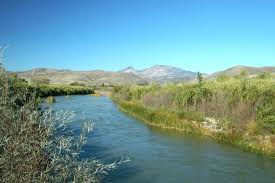CDFA To Hold Good Ag Neighbors Workshops
Workshop Designed for Produce Growers and Livestock Areas to Promote Food Safety
News Release
In order to facilitate dialogue between different sectors of California agriculture about cooperation to prevent future foodborne illness outbreaks, the California Department of Food and Agriculture (CDFA) is partnering with the University of California and the U.S. Food and Drug Administration (FDA) to bring the livestock and produce communities together for a series of workshops.
The workshops, titled Good Ag Neighbors, are designed for fruit and vegetable growers, livestock owners, and others interested in learning about how produce safety and livestock management practices can work jointly to promote food safety.
The workshops will be held in two California locations, with the first scheduled for June 11 from 9 a.m. to 4 p.m. at the Desert Research and Extension Center in Holtville. The second workshop is scheduled for June 13 from 9 a.m. to 4 p.m. at the Robert J Cabral Ag Center in Stockton.
“Agriculture is complex,” said CDFA Secretary Karen Ross. “This is particularly true in California, where diverse agricultural operations often exist side-by-side, with each of them required to comply with a myriad of regulations designed to protect the public, the environment, and the food supply.”
Diversity is extremely important to the fabric of California agriculture. Also important is open communication channels between diverse partners. This has become more apparent with the CDFA’s newly created Produce Safety Program, which is working on behalf of the U.S. FDA to enforce produce safety regulations under the Food Safety Modernization Act.
The workshops will address lessons learned from recent investigations of produce-related foodborne illness outbreaks, examine key research findings, and consider future research needs.
The workshops are being conducted by the UC Davis Western Institute for Food Safety and Security and will include presentations by researchers and industry representatives. The day-long agenda will focus in the morning on reviewing regulations, laws, and practices already in place to protect food and environmental safety, while the afternoon will be spent in various breakout groups examining how these practices can be leveraged.
Participants should come prepared to share their experiences as well as their produce safety questions.
The workshops are offered free of charge. For more information and to register, please visit http://www.wifss.ucdavis.edu/good-ag-neighbors/.











